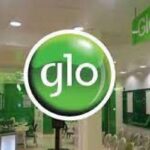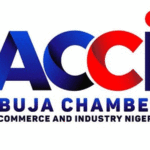The cost-of-living crisis and the new bank-deterrent charges for cybersecurity have made the need for innovative financial solutions critical. Even during normal times, businesses find it hard to be incorporated into the financial system, and the ongoing policies will further discourage them.
Small businesses which provide over 80 per cent of jobs in Nigeria and form the backbone of the economy are finding it difficult to operate. According to SMEDAN’s 2021 data, the South West had 277,270 business enterprises, representing 22.3 per cent of the country’s total. The North West followed with 254,668, representing 20.5 per cent of the total, while the South South had 220,765 businesses, representing 17.8 per cent of the total. The North East had 157,314, representing 12.7 per cent of the total, and the South East had 112,508 businesses, representing 9.07 per cent of the total.
The new bank charges will likely push them out of the financial sector as it will be more favourable to operate outside the banking system, making it a major challenge for growth in economic activities in the country. If we agree that growth for these micro businesses will translate to growth across the whole economy, then we must begin to design the models that will work to generate growth for them.
In the North, where cultural and religious values overshadow economic activities, traditional banking products fall short. Despite the growth in the banking sector, Nigeria currently hosts only three fully-fledged Islamic banks and two traditional banks that provide Islamic banking services with limited distribution networks. This has caused the three geopolitical zones in the North to continue lagging in financial inclusion, and regional inequality has continued to widen. Even before these new cybersecurity charges, an estimated 60 per cent of the Muslim population was unbanked – a systemic problem that requires a creative method to solve.
ACF hails FG’s stance against foreign military bases
Daniel: Police yet to release abducted journalist despite outcry
One piece of evidence that keeps lingering in the minds of the public is the 2022 findings of the Senate regarding the Development Bank of Nigeria (DBN), where 57 per cent of the N500bn loan was disbursed to the South West, primarily to Lagos, leaving leftovers for the North East and the North West at one per cent and five per cent respectively. The reason highlighted for this disparity was that Northerners were reluctant to apply for interest-based loans because it goes against Islamic financial principles. Let’s not forget, this was before a bank-deterrent policy like the cybersecurity charges was proposed.
Similarly, the Anchor Borrower Programme (ABP) which benefitted many farmers had its own issues. It involved a business transaction that included cost-plus agreements or profit-sharing arrangements through the sales of agricultural produce – a kind of Islamic finance arrangement, murabaha. However, it was still not well-received by the unbanked poor farmers in the North. Thus, this makes me raise the case of qard al-Hasan, also known as al-qard al-hasan, qard hasan or qard.
Qard al-hasan refers to an interest-free loan. It is an Islamic financial instrument specifically designed to foster economic welfare without the burden of interest. In a qard al-hasan transaction, the borrower repays only the principal amount of the loan without interest, markup or a share in the business for which the loan was used.
This model, qard al-hasan, holds the potential to provide a much-needed lifeline to struggling businesses. It not only offers necessary liquidity but also aligns with ethical and religious considerations. Zero-interest financing is particularly attractive in regions where conventional loans with interest are religiously and culturally unappealing.
Even though there are other Islamic finance products available, like mudarabah (profit-sharing), murabaha (cost-plus financing), ijarah (leasing), musharakah (joint venture), takaful (Islamic insurance) and kafala (loan involving a surety), but they have proven to be less attractive options for the targeted unbanked groups and businesses over the years. These products come with various restrictions, making them a bit difficult to sell at the first instance, like the Anchor Borrower. Some require the entrepreneur to share a portion of the profits with the bank or investors, which can be seen as a form of indirect taxation. They unintentionally restrict potential reinvestment capital from businesses, making them less suitable for the unbanked groups and those just starting a business.
On the contrary, qard al-hasan does not dilute the entrepreneurs’ potential gains through profit-sharing; instead, it allows them to reinvest all of their profits back into their enterprises, acting as a form of economic subsidy. This type of financing is vital in a region where reinvestment and sustained business growth are needed. It allows small business owners to focus on growth and operational improvements rather than on servicing high-cost debt.
Unlike the agriculture-focused ABP, the qard al-hasan model for small businesses can support businesses across various sectors. The loans will be strictly principal without additional fees or profit, which will be appealing to entrepreneurs. This will include industries beyond agriculture, including manufacturing, services, technology, and retail. Like the ABP, the funding should come from the government. Its regulation and design should involve the CBN, non-interest financial institutions and government bodies.
This untested model of qard al-hasan could be the first step in financially integrating a significant portion of the country’s unbanked groups. It could also ease some of the economic pressures faced by individuals and businesses, especially in these challenging economic times when unnecessary bank charges will be driving businesses away from the financial sector.



